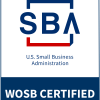At a retreat I recently attended at the Deer Park Retreat Center in Colorado, we were ringing in the new year with a discussion on the joy of authenticity. When we think about connecting with each other and building relationships across social differences, showing up and interacting from our authentic selves is critically important.
Authenticity:
builds trust and true connection;
allows us to consciously respond to situations rather than to react from our conditioned (and often unintentionally biased) selves;
is the antidote to implicit bias and microaggressions for when we connect authentically, it is almost impossible to stereotype or treat another human being poorly or with prejudice;
encourages compassionate interaction that makes it possible for us to give another person the benefit of the doubt.
When we can look in another person’s eyes and see our shared humanity, it is not possible to do them harm.
But looking around the room at the retreat participants, I noticed it was mostly white folks who were claiming that authenticity allows us to overcome social ills and injustices. The prevailing notion was that if we could just be authentic, then all would be well, and even joyful.
This led me to ask the question: Who gets to show up and just “be authentic”? Being authentic is a privilege given to some and withheld from others based on the systemic oppression that exists in our society. If you are consistently accepted in most rooms you walk into, you may feel more comfortable or at least willing to trust that your authentic self will be accepted, welcomed, and even appreciated. But not everyone has the luxury of always being their authentic selves.
If you are the consistent recipient of microaggressions, either based on your race, gender identity or expression, sexual orientation, disability, among other social identities, it is likely that your attention and energy may have to be used to challenge or dismantle the stereotype threat that you inevitably experience on a daily basis. The mental gymnastics that are required to navigate the rocky terrain of microaggressions and stereotype threat do not leave much room for showing up unencumbered and as your “authentic” self.
So what then are the implications for interacting authentically if some are freer to do so than others? We will only be able to do so when the environments we create are safer than most of those that exist at present. The NeuroLeadership Institute cites many studies that have found that humans are evolutionarily wired for exclusion. In every situation we enter into, we unconsciously measure how excluded we feel. That means that in order to create an environment of inclusion, where everyone is free to behave authentically, we must go out of our way, even overboard, to convey inclusion.
1. We must be brave enough to learn the ways in which we might be unintentionally including some and excluding others;
2. Actively seek out situations/events where we can learn about cultures or social identities that are different from our own, and meet new people;
3. In our interactions, we must slow down. Mindful interaction allows us to challenge any biases or assumptions that arise in the moment, and we can then choose to act differently;
4. Always ask questions! This is a great way to challenge our long-held beliefs and assumptions;Show up again and again, even after unintentionally perpetuating a microaggression and apologizing. Don’t let shame keep you from moving forward to building relationships across differences.
These are a few of many ideas for becoming more culturally inclusive, which in turn, will produce inclusive environments. Only then can authenticity truly be the answer it is professed to be, that I believe it is, to building true, healthy, even joyous relationships across cultural differences.

